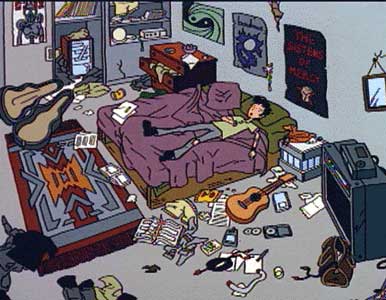Time does not have quanta, Ben tells me, and I have to admit that it sounds quite deep at first. But then, how can we tell? How can we tell if anything does not have quanta for that matter? For isn't human perception, and even consciousness, quantized, just by definition? I mean, everything eventually boils down to that one synapse inside the brain, and that is a discrete, individual unit; which then, in turn, quantizes pretty much any and every human experience.
In fact, as I think about this, it seems to me that this is a version of Zeno's third motion-is-impossible paradox, which basically claims that an arrow cannot move from point A to point B because, in order to do so, its motion has to be both discrete and continuous at the same time. Examined at one instant in time, an arrow in flight would appear to be no different from one that is stationary. What is it then that gives one object motion and the other one stillness?
Which actually brings up what to me is one of the most fundamental and profound problems of human philosophy and science: the reconciliation of the basic dichotomies of the Known Universe. Discrete and continuous; particle and wave; body and soul; matter and energy; form and content. Diametrically opposite and yet irrevocably linked.
Tuesday, May 30, 2006
Subscribe to:
Post Comments (Atom)

1 comment:
I do not like Zeno's paradoxes at all. They are heavily flawed on close examination.
An arrow in motion is very different from one that is stationary simply from the perspective of energy. Even if frozen in time, a moving arrow possessed the kinetic energy (momentum and inertia) that a still one does not. Blah blah...
I do agree with the dichotomies of the universe, although the dichotomies are not necessarily opposites.
Post a Comment